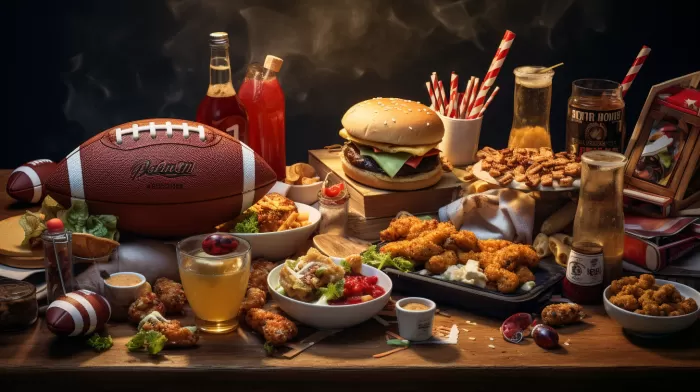Sports fans, brace yourself for this: Whether your team wins or loses actually has a significant impact on your health, especially the way it influences your eating habits. As strange as it sounds, research has shown a direct correlation between a team’s performance and the eating choices people make the next day.
The NFL study
This curious and rather unexpected connection came into the limelight when researchers at INSEAD Business School conducted a study analyzing the food consumption patterns of NFL fans following their team’s games. The findings were indeed intriguing: after a loss, fans consumed a whopping 16 percent more saturated fat on Monday. Comparatively, when their team won, they ate approximately 9 percent less saturated fat compared to their usual consumption.
But that’s not all. Interestingly, these eating trends were also seen in people who were not football fans themselves, but happened to live in the cities of winning or losing teams. The effects were even more pronounced when the games were nail-bitingly close and the outcome decided at the last minute.
Digging into the reasons
According to Yann Cornil, one of the researchers in the study, this marked the first time that an investigation was undertaken to explore the relationship between sports outcomes and eating behavior. Though it was previously known that sports results affected reckless driving, heart attacks, and even domestic violence, the connection to eating habits had not been examined so far.
The results of the INSEAD study clearly indicate that people tend to eat better when their football team wins, and worse when it loses – especially if it was an unexpected defeat, if the match was closely contested, or if the opposing team was of equal strength. While it may initially seem surprising, this insight is actually quite relatable if you think deeply about it. Sports enthusiasts often experience an adrenaline rush and an emotional high when their team comes out on top, which may translate into more enthusiasm and vigor for making healthy eating choices. On the other hand, the disappointment after a loss might make them more inclined to indulge in comforting junk food as a coping mechanism.
How to deal with the aftermath of your team’s defeat
If we were to ask you a personal question: Are you one of those ardent fans who can’t help but feel dejected when your team loses a big game? If yes, your food choices could be a ticking time bomb. So, what can you do to keep your health and diet on track when your favorite team has a bad day on the field?
The researchers from the INSEAD study recommend adopting a mindful approach to prevent these adverse effects. Their first suggestion is to try not to obsess over your team’s losses. They also propose a smart technique called ‘self-affirmation’, which acts as a safety cushion to soften the blow of defeats. This involves writing down what really matters to you in life – a practice that completely wiped out the negative effects of losing games in the study.
Striking the right balance
So, the next time your team experiences a crushing defeat or a thrilling victory, remember that it’s just a game and that your own health is, ultimately, the biggest victory of them all. Adopting this perspective will help you maintain a more balanced view of things and ensure that whatever happens on the field doesn’t wreak havoc on your body.
Investing in your favorite sports team is great, and it’s awesome to be passionate about your team’s success since it can help you bond with others and contribute to your emotional well-being. But understanding the link between sports outcomes and health is important to keep your own emotions in check. Always remember that your favorite team’s win or loss doesn’t have to govern your eating habits, and that the game doesn’t need to dictate your personal health choices.
At the end of the day, try to enjoy the rollercoaster ride that is a sports season without letting it impact your overall well-being too much. After all, being a fan is all about the thrill and the journey – and there’s always the next game waiting just around the corner!



